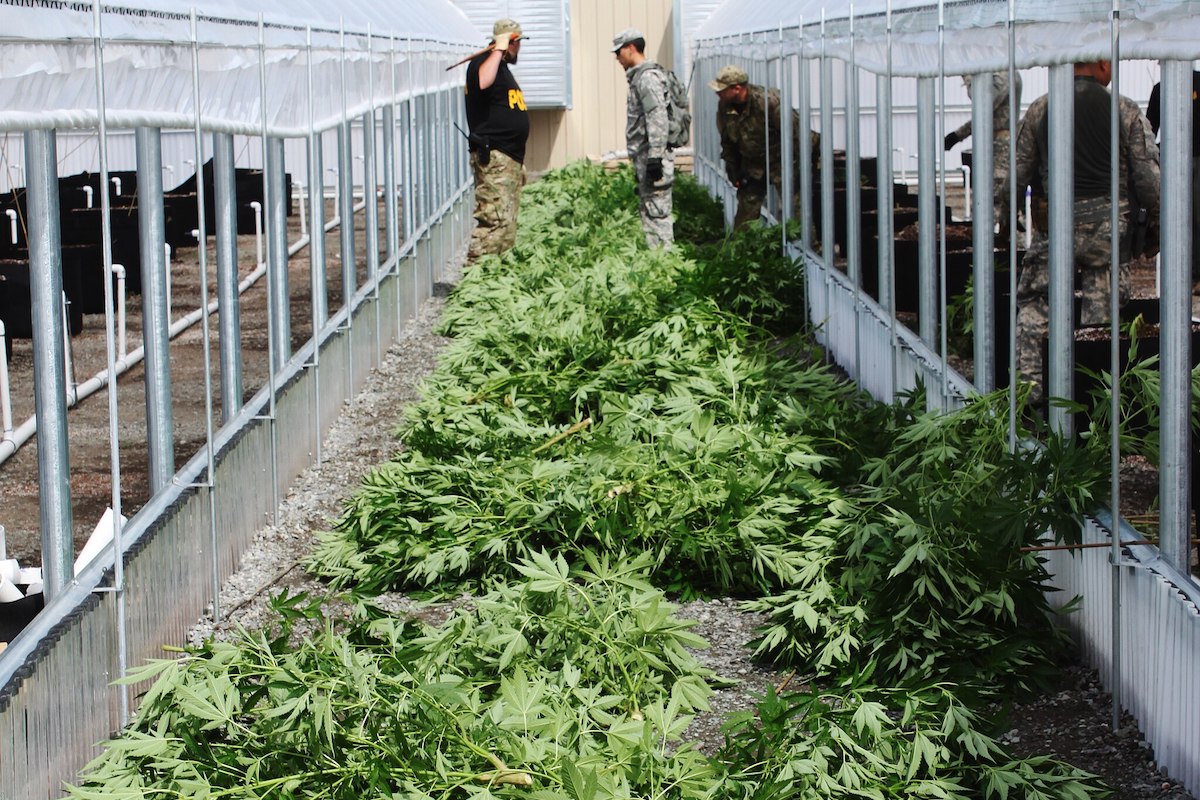States across the country, as well as the federal government under veteran drug-warrior President Joe Biden, are falling all over themselves to free from prison people convicted of cannabis crimes and to expunge those convictions from their records.
This is, of course, all to the good. Weed, obviously, should never have been illegal in the first place, and throwing people in prison for years or decades for possessing or even for selling pot amounts to cruel and unusual punishment for an act that should never have been punishable at all. Also cruel and unusual: forcing people to live their lives with felony convictions on their records, making it very difficult for them to land jobs or find a landlord willing to rent them a home, simply for possessing pot.
And so it’s very weird when the state of California—where pot has been legal for more than five years now—brags about busting pot dealers, as it does every three months and did again this week. Of course, not all pot is legal, and in fact the majority of weed sold in California is illicitly grown and illicitly sold. To be legal, it must be sold by licensed businesses that agree to a set of strict regulations and a severe testing regime. And of course, it must be taxed.
So it’s not bad, exactly, that state and local governments continue to go after illicit pot growers and merchants. It’s just weird. It likely felt weird to longtime moonshiners when alcohol prohibition was lifted in 1933, too. And it’s not like it’s all that unusual to bust people for selling legal substances in an illegal way, like when corner stores sell untaxed, and often stolen, cigarettes.
The central irony here is that the state government that is going after illicit dealers is the same state government that, via insanely high tax rates on legal pot along with other misguided policies, has enabled the illicit market to thrive in the first place. Some local governments—and particularly local sheriff’s offices—are as hopped-up on anti-weed sentiment as they ever were, sometimes to the point of targeting legal pot businesses.
Legal cannabis companies are generally in favor of the state’s crackdowns, for obvious reasons, though they also would, for equally obvious reasons, prefer that state and local governments lower taxes and remove other unnecessary impediments to doing business. The busts and seizures would also be better received in that case.
The pot business existed for decades before weed became partly legal. So, naturally, many of the people now in the legal business had been in the illicit market long before Prop. 64 was passed in 2016. That’s especially the case with growers, some of whom now actually serve both markets, legal and illegal.
But a lot of the busts carried out by law enforcement target straight-up career criminals. In the raids, guns are often seized along with piles of weed. In the second quarter of this year, the Unified Cannabis Enforcement Taskforce (UCET) seized 19 guns—compared to four in the same period last year.
These actions aren’t meant only to protect the legal market. Many illicit pot dealers befoul the environment with pesticides and their products, which obviously aren’t tested, often contain contaminants. The mission is “to safeguard public health and the environment,” said Hansen Pang, chief investigator for the state’s Department of Toxic Substances Control. “Through our expertise in addressing environmental concerns, including contamination, hazardous waste and banned pesticides, we collaborate to eliminate the adverse impact of the illegal cannabis market.”
But UCET, created last year to unify enforcement efforts, makes no bones about the fact that it is, as it put it in a statement, “supporting the legal cannabis market by investigating and disrupting illegal grow sites as well as shutting down illegal manufacturing, distribution and retail operations.”
As necessary as such actions might be, some perspective is required. The second quarter’s raids resulted in seizures of $110 million worth of weed, more than doubling the haul of the same period last year. The size of the illicit pot market in California is estimated at somewhere between $8 billion and $9 billion. In 2022, the legal market generated about $5.3 billion in revenue. Welcome to the new drug war: legal vs. illegal.








